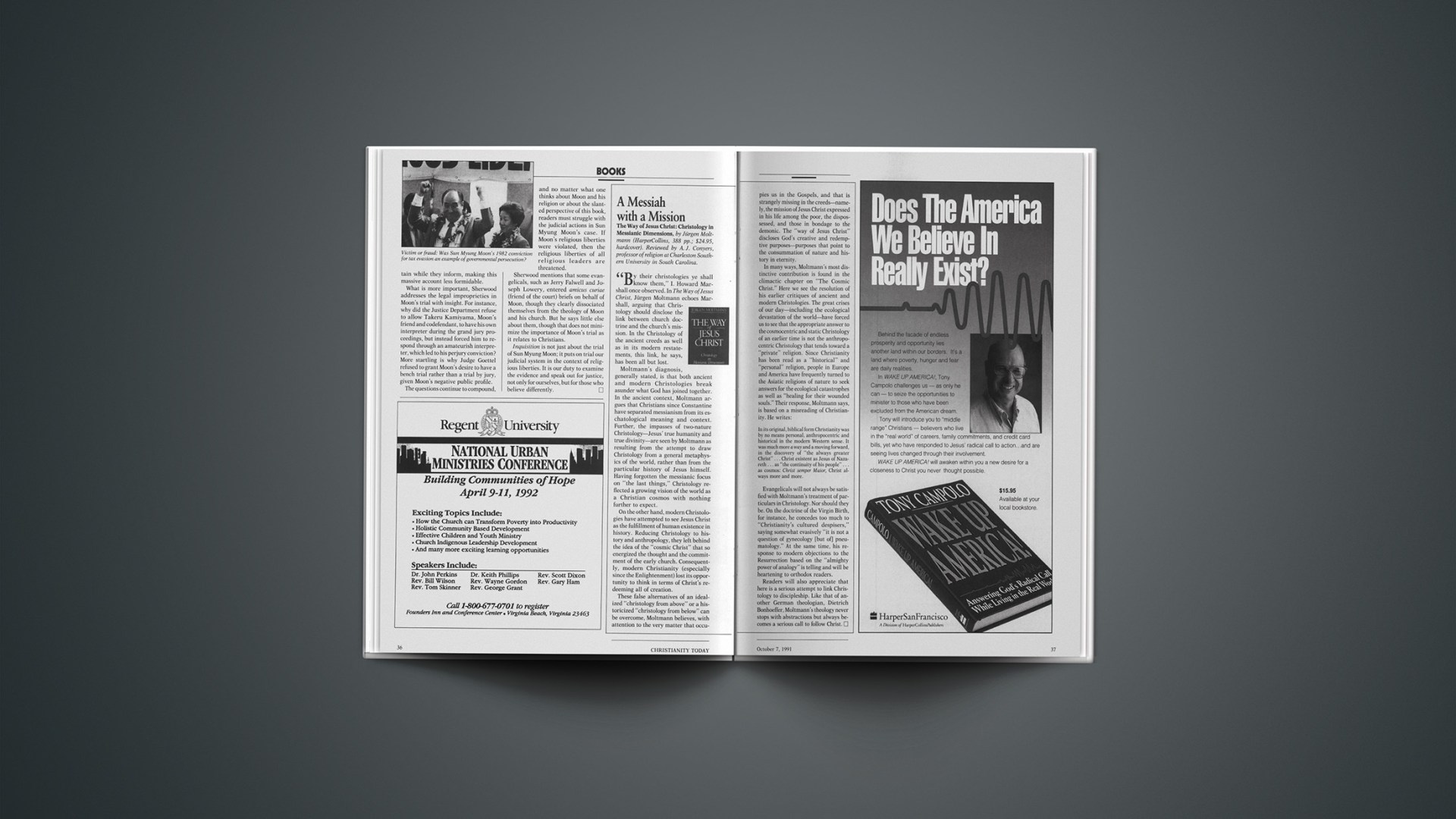The Way of Jesus Christ: Christology in Messianic Dimensions, by Jürgen Moltmann (HarperCollins, 388 pp.; $24.95, hardcover). Reviewed by A. J. Conyers, professor of religion at Charleston Southern University in South Carolina.
“By their christologies ye shall know them,” I. Howard Marshall once observed. In The Way of Jesus Christ, Jürgen Moltmann echoes Marshall, arguing that Christology should disclose the link between church doctrine and the church’s mission. In the Christology of the ancient creeds as well as in its modern restatements, this link, he says, has been all but lost.
Moltmann’s diagnosis, generally stated, is that both ancient and modern Christologies break asunder what God has joined together. In the ancient context, Moltmann argues that Christians since Constantine have separated messianism from its eschatological meaning and context. Further, the impasses of two-nature Christology—Jesus’ true humanity and true divinity—are seen by Moltmann as resulting from the attempt to draw Christology from a general metaphysics of the world, rather than from the particular history of Jesus himself. Having forgotten the messianic focus on “the last things,” Christology reflected a growing vision of the world as a Christian cosmos with nothing further to expect.
On the other hand, modern Christologies have attempted to see Jesus Christ as the fulfillment of human existence in history. Reducing Christology to history and anthropology, they left behind the idea of the “cosmic Christ” that so energized the thought and the commitment of the early church. Consequently, modern Christianity (especially since the Enlightenment) lost its opportunity to think in terms of Christ’s redeeming all of creation.
These false alternatives of an idealized “christology from above” or a historicized “christology from below” can be overcome, Moltmann believes, with attention to the very matter that occupies us in the Gospels, and that is strangely missing in the creeds—namely, the mission of Jesus Christ expressed in his life among the poor, the dispossessed, and those in bondage to the demonic. The “way of Jesus Christ” discloses God’s creative and redemptive purposes—purposes that point to the consummation of nature and history in eternity.
In many ways, Moltmann’s most distinctive contribution is found in the climactic chapter on “The Cosmic Christ.” Here we see the resolution of his earlier critiques of ancient and modern Christologies. The great crises of our day—including the ecological devastation of the world—have forced us to see that the appropriate answer to the cosmocentric and static Christology of an earlier time is not the anthropocentric Christology that tends toward a “private” religion. Since Christianity has been read as a “historical” and “personal” religion, people in Europe and America have frequently turned to the Asiatic religions of nature to seek answers for the ecological catastrophes as well as “healing for their wounded souls.” Their response, Moltmann says, is based on a misreading of Christianity. He writes:
In its original, biblical form Christianity was by no means personal, anthropocentric and historical in the modern Western sense. It was much more a way and a moving forward, in the discovery of “the always greater Christ” … Christ existent as Jesus of Nazareth … as “the continuity of his people” … as cosmos: Christ semper Maior, Christ always more and more.
Evangelicals will not always be satisfied with Moltmann’s treatment of particulars in Christology. Nor should they be. On the doctrine of the Virgin Birth, for instance, he concedes too much to “Christianity’s cultured despisers,” saying somewhat evasively “it is not a question of gynecology [but of] pneumatology.” At the same time, his response to modern objections to the Resurrection based on the “almighty power of analogy” is telling and will be heartening to orthodox readers.
Readers will also appreciate that here is a serious attempt to link Christology to discipleship. Like that of another German theologian, Dietrich Bonhoeffer, Moltmann’s theology never stops with abstractions but always becomes a serious call to follow Christ.










